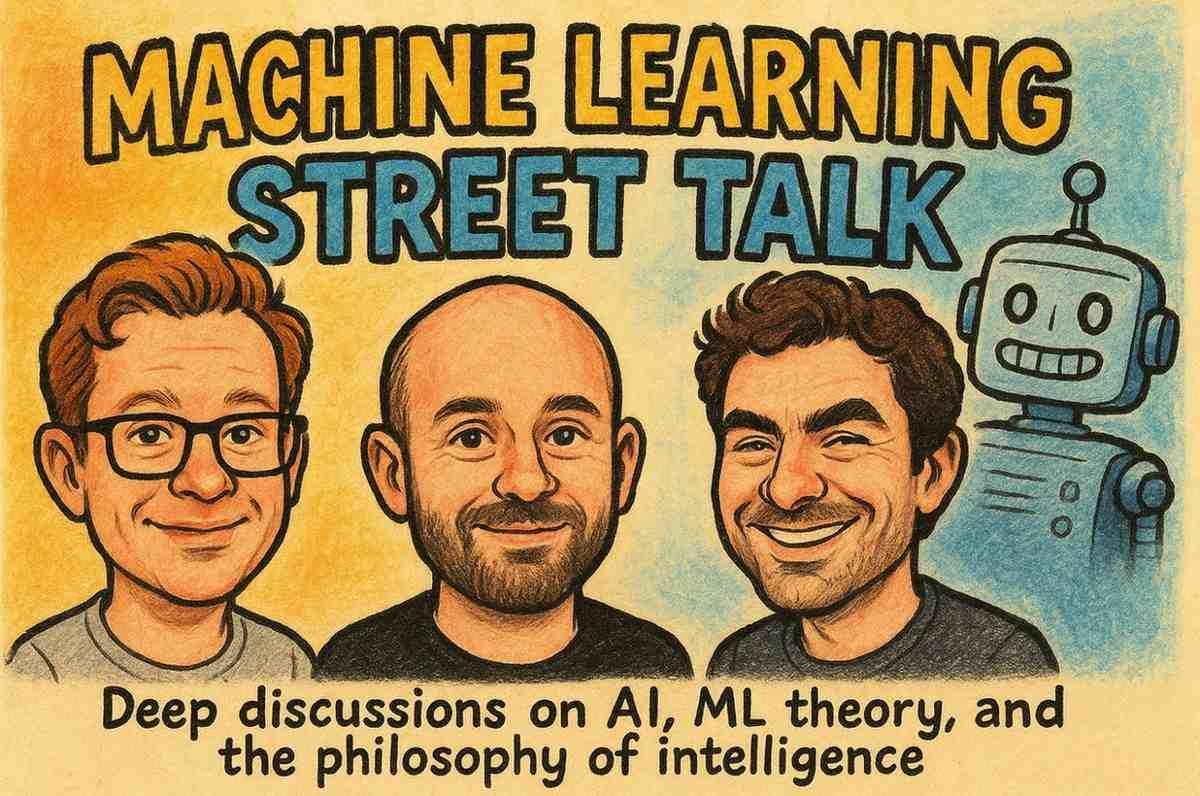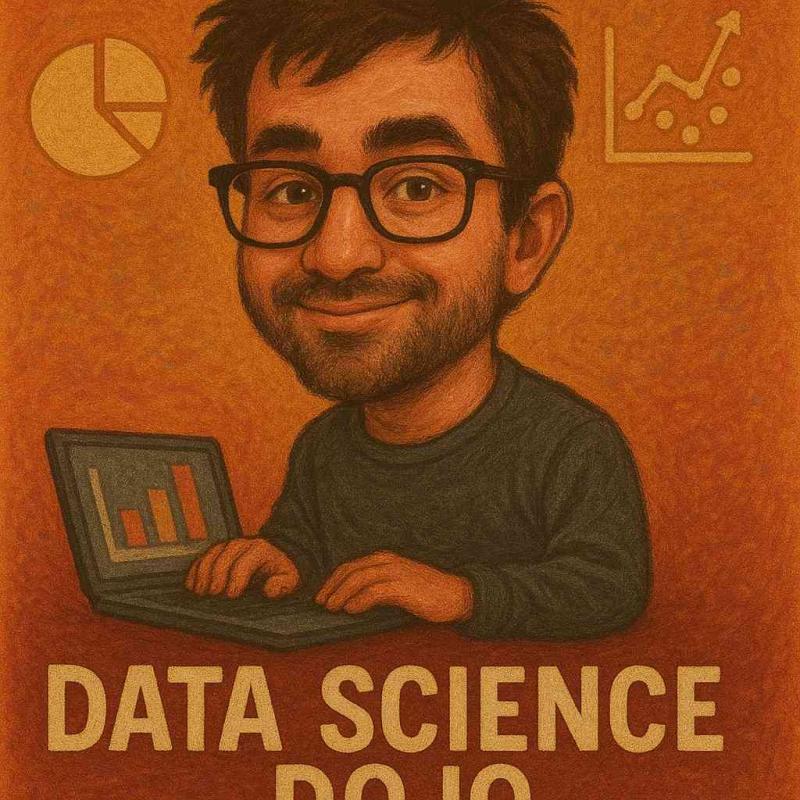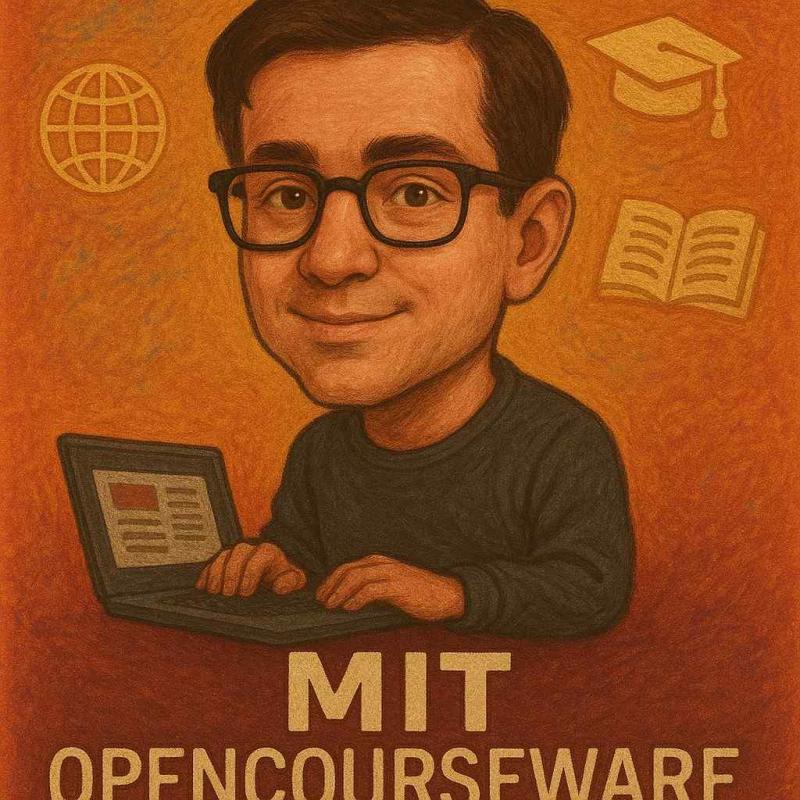Machine Learning Street Talk: Where Nerds, Theorists, and Philosophers Collide (and It’s Awesome)
Let’s be honest: most machine learning podcasts out there feel like audio textbooks. You press play, and twenty minutes later, your brain has quietly exited the building. But then—Machine Learning Street Talk saunters in, drops a few thought bombs, questions reality itself, and suddenly you’re asking your toaster if it’s conscious.
Welcome to the wild, weird, and wonderful world of Machine Learning Street Talk (MLST)—the podcast that treats AI like the deeply philosophical, mind-bending discipline it actually is. If you're expecting surface-level chatter about the “future of AI” with generic buzzwords, uh, prepare to be humbled. And delighted. And occasionally confused (but in a good way, I swear).
Let’s unpack why this show stands out—and why it deserves a permanent spot in your podcast queue.
Not Just Another ML Podcast (Thank God)
I’ve listened to a lot of machine learning content over the years. Like, way too much. Most of it feels like an awkward marriage between TED Talk optimism and enterprise sales pitches. MLST? Totally different animal.
It’s messy. It’s opinionated. It’s occasionally a little British (in the best way). But most importantly—it goes deep.
Machine Learning Street Talk is:
-
Unapologetically technical – They will not dumb it down for you, and honestly? That’s a refreshing change.
-
Philosophically rich – They don’t just ask how a model works; they ask whether the concept of intelligence even makes sense.
-
Genuinely curious – It never feels like a PR exercise. These guys actually care about truth. Wild, right?
Meet the Crew: Not Your Average Hosts
The panel has changed over time, but the main trio that gives MLST its flavor usually includes:
-
Dr. Tim Scarfe – He's the philosophical provocateur. Wants to talk about AGI, consciousness, and whether deep learning is a dead end. You know, casual stuff.
-
Yannic Kilcher – Famous from YouTube. Very smart. Very direct. Sometimes delightfully savage.
-
Dr. Keith Duggar – Brings the rigor. You’ll love him if you’re the type who actually reads the math appendices in research papers (bless your soul).
Together? They make a perfect storm. Think high-IQ pub debate meets neural net nerd-fest, with occasional detours into ethics, epistemology, and “What even is generalization, really?”
Topics That Actually Matter (and Go Way Beyond Hype)
One thing I adore about MLST: they don’t chase headlines.
They're not there to gush about the latest ChatGPT plugin or speculate on AI stock prices. Instead, they tackle real, foundational questions about the nature of intelligence and the limits of current machine learning approaches.
Some standout discussions:
-
“Does deep learning actually understand anything?” (Spoiler: It’s... complicated.)
-
“Can scaling laws get us to AGI, or are we all being fooled?”
-
“Are we just throwing math at the wall and calling it cognition?”
They also don’t shy away from challenging the big dogs. You’ll hear critical takes on:
-
Transformers (yes, even your precious LLMs)
-
Reinforcement learning
-
Bayesian approaches
-
Symbolic AI vs. connectionism
-
And—gulp—whether some of today’s top research is, um, a little performative
IMO, this is where MLST really shines. They question everything. No sacred cows. No hype bandwagons.
Guests Who Aren’t Just There to Plug Their Papers
MLST features some of the sharpest minds in AI, and they ask them the questions no one else dares to. It’s not a softball arena. It’s more like friendly intellectual combat—with a smirk.
A few legends they’ve had on:
-
Gary Marcus – Longtime critic of deep learning. Comes ready to spar.
-
Yoshua Bengio – One of the godfathers of deep learning. Absolute brain-melter of an episode.
-
David Chalmers – Philosopher. Yes, that Chalmers. Because MLST likes to get weird.
What’s cool is how respectful but intense the dialogue gets. You feel like you’re listening to an elite research seminar... hosted in a pub. In the best way possible.
Not Just Tech—It Gets Existential
Let’s get real for a second.
AI isn’t just about models and metrics anymore. It’s about power, responsibility, truth, and how we even define things like knowledge or intelligence. MLST leans all the way in.
Topics that show up more than once:
-
What’s the nature of intelligence?
-
Is AGI even possible—or is it sci-fi fantasy?
-
Can models “understand” anything—or are they just autocomplete machines on steroids?
-
Should we slow down AI development?
-
And, inevitably: “Will the robots kill us?”
These are not easy questions. MLST doesn’t claim to answer them definitively. But they do what most podcasts won’t: they wrestle with the hard stuff. Thoughtfully. With nuance. And just enough cheek to keep it fun.
Things to Know Before You Tune In
Alright, real talk. MLST isn’t for everyone. But if you’re a little nerdy, a bit philosophical, and love those “wait, what just happened?” kind of moments—you’ll be hooked.
Here’s what to expect:
-
Long episodes – Some run over two hours. Grab coffee. Maybe some aspirin.
-
Dense content – You might need to pause and rewind. Often.
-
No hand-holding – They assume you’ve read something beyond just Medium articles. If you haven’t, you’ll catch up.
Is it challenging? Yes. But so is trying to figure out whether your LLM just gaslit you into thinking you’re in a simulation.
TL;DR – Why You Should Listen to Machine Learning Street Talk
Let me break it down:
-
It’s not hypey. They care about truth, not trends.
-
It’s deeply technical. Like, math-in-the-notes technical.
-
It’s philosophically fascinating. More Socrates, less sales pitch.
-
It’s hosted by actual thinkers. People who aren’t afraid to say “I don’t know”—and mean it.
And hey, in a world where AI podcasts are multiplying faster than GANs generate cats, finding one with this level of depth (and sass) feels like a small miracle.
Final Thought: Street Talk Is Smart Talk
So yeah, Machine Learning Street Talk may not be the easiest listen on your feed—but it’s absolutely one of the most rewarding. It challenges you. It expands your thinking. Sometimes it melts your brain a little.
But at the end of each episode, you come out sharper, humbler, and a tad more skeptical of that paper that just claimed AGI is “right around the corner.”
And really—isn’t that the kind of intelligence we actually need right now?
Now go queue up an episode and see how long it takes before you start questioning the nature of reality. (My record: 11 minutes. Beat that.) 😊



